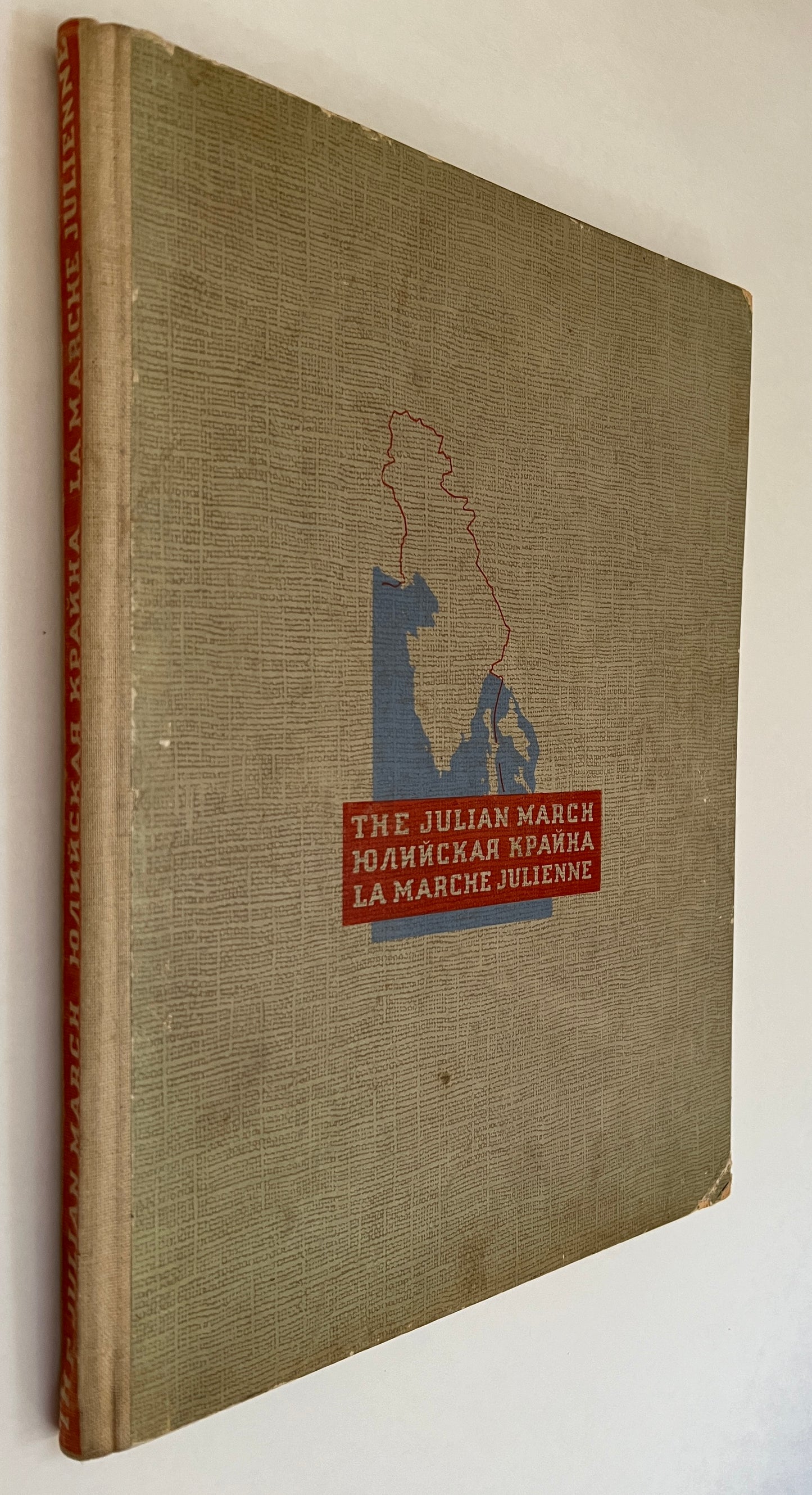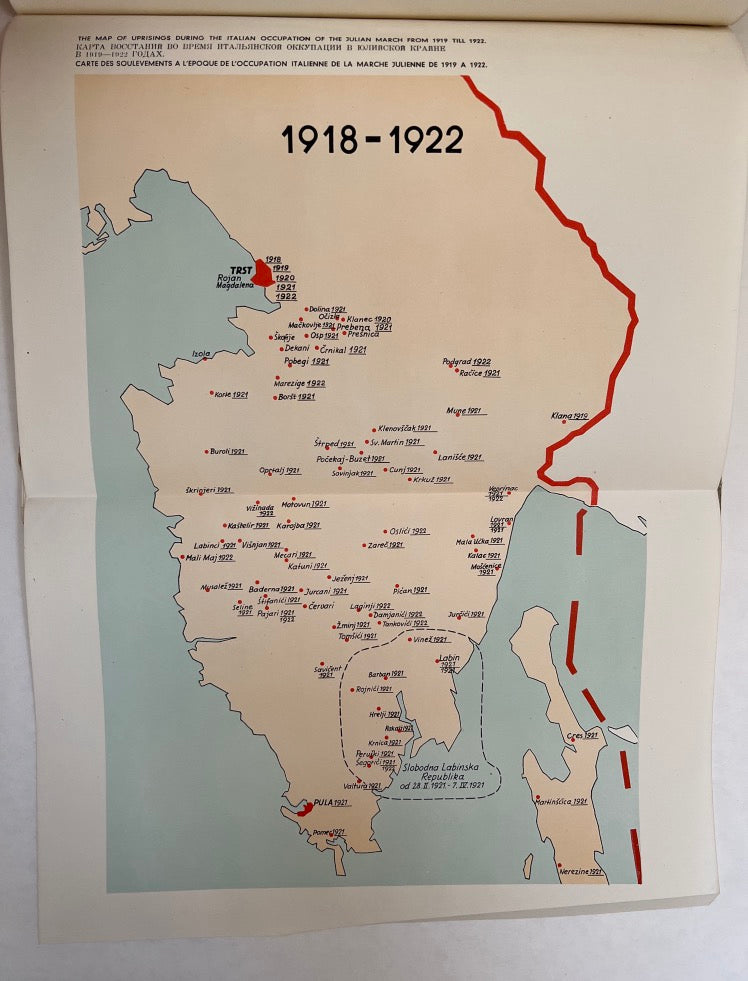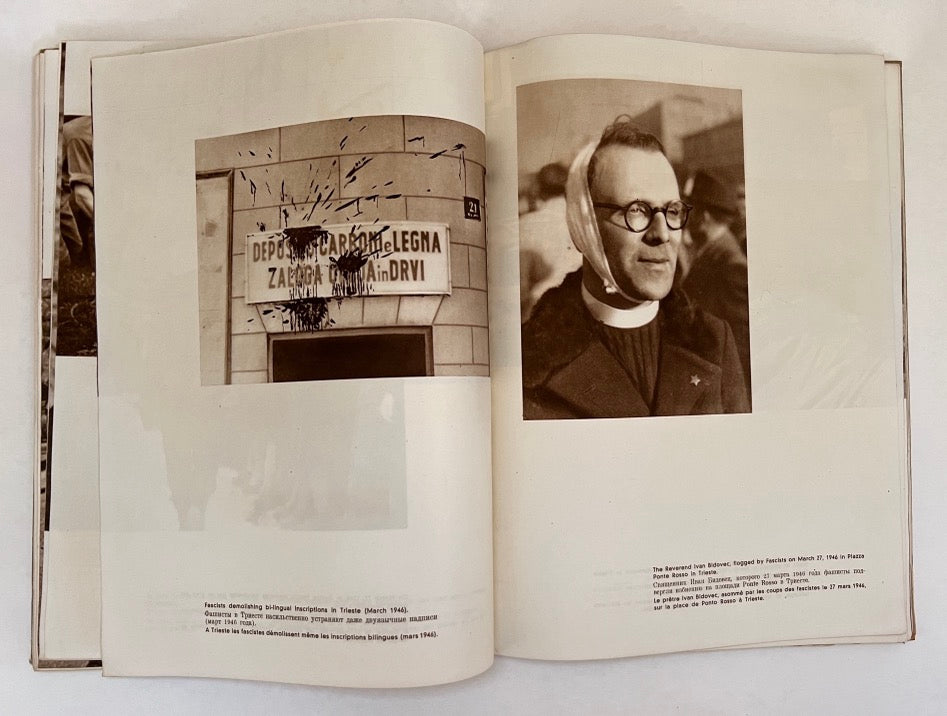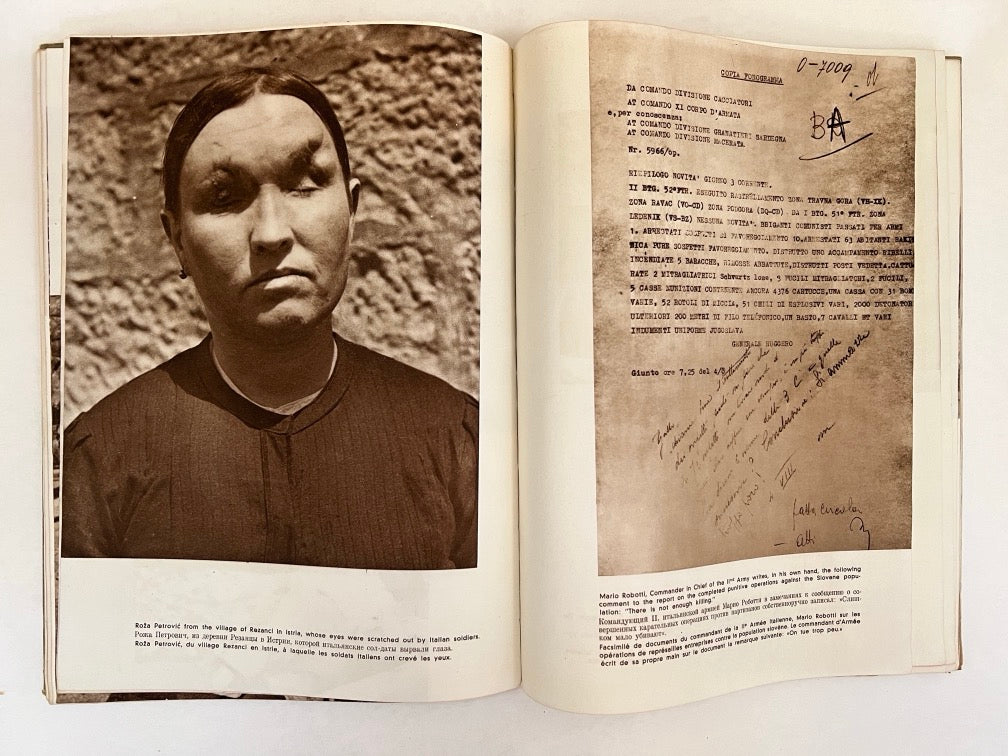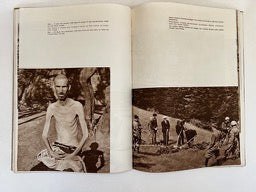[No author given]
The Julian March = Julijskaja Krajna = La Marche Julienne.
The Julian March = Julijskaja Krajna = La Marche Julienne.
No se pudo cargar la disponibilidad de retiro
[Ljubljana]: [Zunanje ministrstvo], Ljudska pravica, [1946]. Folio in beige cloth-backed boards; [176] p., numerous high quality(gravure?) sepia photo reproductions, illus & maps (some folding); 34 cm. Front hinge partly cracked now re-sealed with archival glue; minor edge-wear; overall about very good to very good(-) thus. Hardcover.
Parallel text in English, Russian & French. Extra postage fees may apply due to size. World War II WW2, Military History. Material on war crimes committed against Slavic ethnic groups. WARNING: Graphic depictions of war crimes. Not for the faint of heart. ¶ "During World War II, the Julian March, also known as Venezia Giulia, was a region characterized by complex geopolitical dynamics. Initially part of Italy, it became a contested area when the Axis Powers, including Italy and Germany, occupied Yugoslavia in 1941. Italy extended its control over portions of the Julian March that had formerly been under Yugoslav administration. However, resistance movements, primarily composed of ethnic Slovenes and Croats, emerged to oppose the Italian and German occupation. These partisan groups played a crucial role in undermining Axis control in the region. As the Allies advanced in 1944 and 1945, the Julian March became a battlefield, with resistance fighters and Allied forces liberating various areas. After World War II, significant territorial changes occurred in the region as the Paris Peace Treaties of 1947 redefined Italy's and Yugoslavia's borders. The majority of the Julian March, including the city of Trieste, was divided between the two countries. The establishment of the Free Territory of Trieste, administered by the United Nations, aimed to serve as a temporary solution to the complex territorial disputes in the region, reflecting the intricate historical context of the Julian March during World War II."—Wikipedia / Slavia Italiana Beneska Slovenia,
Compartir
